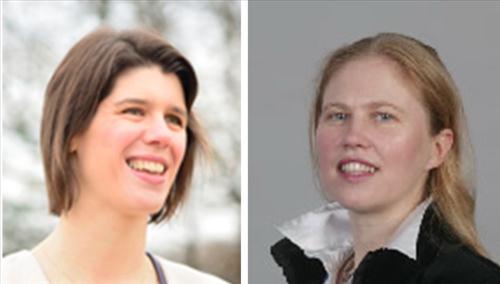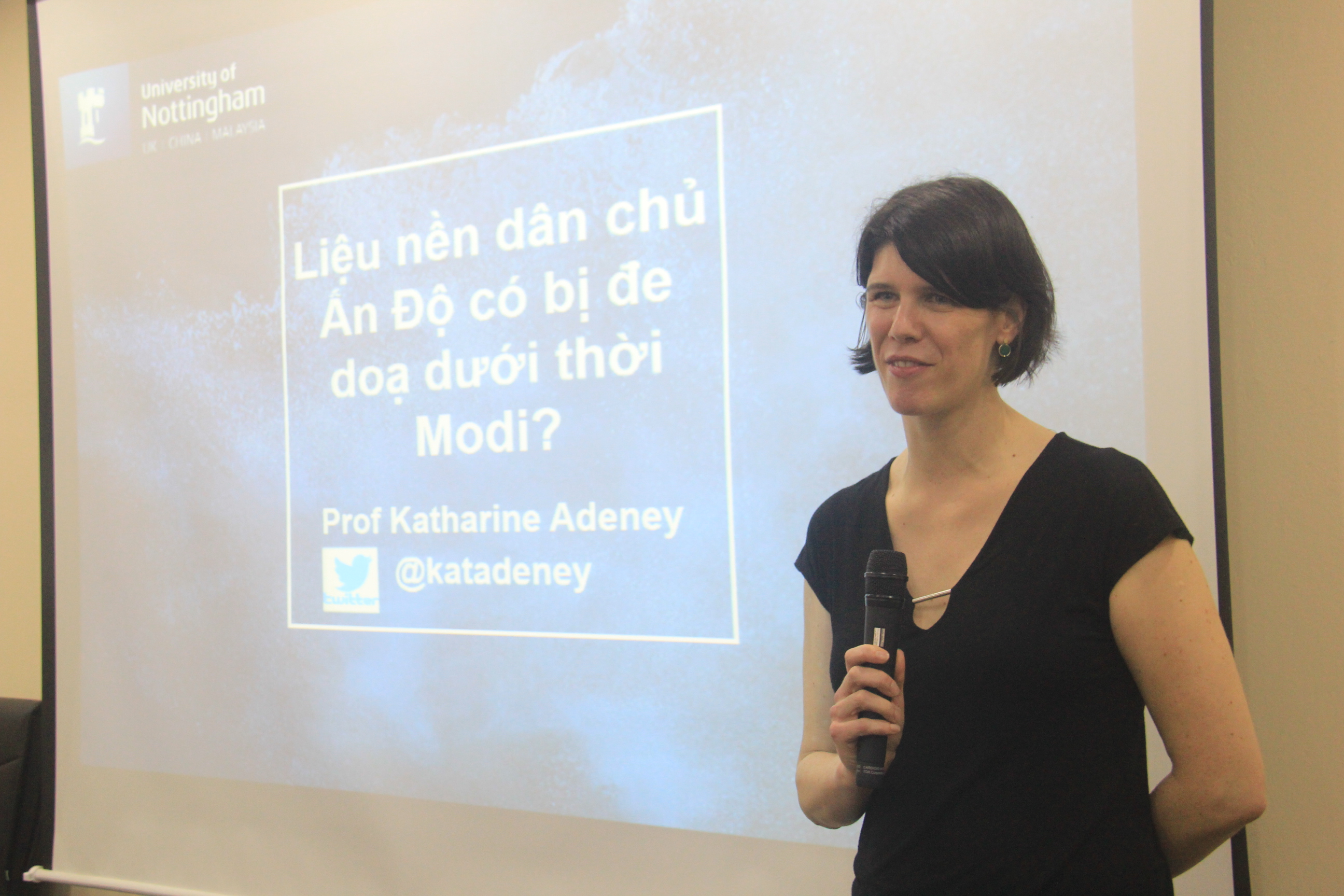
On May 23, 2017, the series of lectures began with a presentation by Professor Catherine Gegout on the topic of "European Intervention in Africa." The presentation started by listing the direct military interventions of France, the UK, and the EU in Africa from 1986 to 2016 and explaining the motivations behind these interventions, including security, economic, prestige, humanitarian, and postcolonial motives.
Accordingly, the motives for intervention can be ranked in order of priority from highest to lowest. Security is the primary motive, including ensuring healthy relations with the ruling regime, combating terrorism and immigration, protecting military bases, protecting one's own citizens, and helping the US maintain its hegemony. Next are economic interests, as long as security interests are secured. Third, the leaders of these countries want to intervene to gain respect and maintain power, encourage public trust and respect to legitimize their position, and build reputation with the state where they intervene, with states in the same geographical region and/or with similar cultural values as the superpower the United States, and with UN member states. At the final level is the moral motive, that is, they feel a humanitarian responsibility towards people outside their territory. However, this is the final motive and is only pursued on the basis of satisfying the first three objectives.
Next, Professor Katharine Adeney shared her experience with several teaching and research methods at the University of Nottingham. Professor Adeney distinguished between different teaching styles such as interactive lectures, problem-solving exercises, simulations, online teaching, and debates. She also highlighted various types of assignments such as written work, essays, reports, dissertations, and projects. She also addressed issues in teaching, most notably plagiarism. According to her, plagiarism means: presenting someone else's research as one's own, imitating, copying, colluding, and using someone else's words/thoughts without citation. Furthermore, students often fail to distinguish when to paraphrase, when to quote a statement, or how much annotation is sufficient. Finally, she differentiated between two forms of student assessment. Formative feedback aims to help students improve their learning process in a subject, thereby enhancing their results; while summative feedback aims to help students understand what they have accomplished and improve their results in future subjects.

Later that afternoon, Professor Katharine Adeney gave a lecture entitled, "Is Indian Democracy Threatened Under Modi?" to graduate students and faculty members from within and outside the University.
This presentation introduces the history, origins, historical changes, and prospects of Indian democracy. After gaining independence from Britain in 1947, India was divided into two states, India and Pakistan, each with a different religion. Both countries have diverse linguistic and religious groups. According to Professor Katharine Adeney, India's democracy was not achieved by inheriting or leveraging the long-standing parliamentary traditions of Britain, nor by having a large Hindu population. Instead, she attributes three main sources to Indian democracy: the political capacity of the Indian National Congress, with nationalist leaders such as Mahatma Gandhi and Jawaharlal Nehru; the stability of Indian democracy even before independence, based on political unity across a diverse linguistic spectrum; and an open attitude towards diversity.

Professor Katharine Adeney delivered the presentation.
Since independence, Indian democracy has undergone changes such as the rise of people from lower castes, the increasing representation of lower castes in political parties, and the dominance of the BJP nationalist party in elections and in parliament. However, the BJP supports religious nationalism with Hindu dominance throughout the territory. They disregard the rights of Christians and Muslims to maintain their own religious beliefs, suppress dissenting voices and 'anti-nationalist' elements; and concentrate cultural power in the hands of Hindus.
According to Professor Katharine Adeney, this poses a threat to Indian democracy, especially after the 2014 presidential election by Narendra Modi. The government is willing to use the military to suppress dissenting forces such as Muslims. However, the aforementioned positive changes will continue to promote democracy, even if it cannot be said to be perfect.
|
Professor Katharine Adeney
|
|
Professor Catherine Gegout
|
Author:Tran Minh
Newer news
Older news